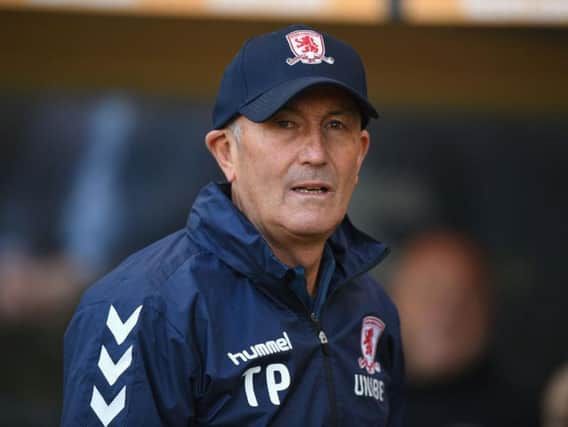Why Tony Pulis HAD to go and the key issues Middlesbrough have to contend with this summer


As Gibson pointed out in his statement on the club's website, Pulis not only slashed the wage budget during his 18-month spell on Teesside, but also helped promote several of the club's youth players including Dael Fry, Lewis Wing, Marcus Tavernier, and Nathan Wood.
But for all his good work off the pitch, Boro's performances on it were hardly inspiring, and, with an ever-increasing backlash towards the Boro boss, his tenure was simply unsustainable.
Advertisement
Hide AdAdvertisement
Hide AdAfter missing out on the Championship play-off places this campaign, it was clear the relationship between Pulis and the Riverside faithful was beyond repair, with the manager's style of football and negative tactics a determining factor.
For those reasons it was too big a risk for Gibson to offer Pulis a new deal, even if Boro finished just one point off the top six.
Why Pulis had to go
Despite Boro spending most of the campaign in the Championship's top six, the buzz of a promotion-chasing campaign never really picked up pace this term.
It was a stark contrast to the two seasons when Middlesbrough challenged for Championship promotion under Aitor Karanka, when the Spaniard made Boro's home ground a fortress.
Advertisement
Hide AdAdvertisement
Hide AdWhile attendances remained above the 20,000 mark this season, the atmosphere on Teesside had become toxic, so much so that it felt like a hindrance playing at home.
The unrest wasn't without reason. Only four teams in the Championship (Stoke, Millwall, Bolton and Ipswich) scored less goals than Boro in the 2018/19 campaign, as Pulis regularly bemoaned his side's wastefulness in front of goal.
He did have a point, Boro could have released a DVD of clear goalscoring chances which were missed over the course of the campaign.
Yet it became a regular theme that when Boro did go a goal up, they would take a cautious and conservative approach - desperately trying to hang onto a slender advantage.
Advertisement
Hide AdAdvertisement
Hide AdSometimes it worked, other times in backfired. Either way, ultimately for Pulis, the fans weren't buying it.
The dilemmas Gibson now has to deal with
So who next? That is the question Gibson is now facing after 18 months of Pulis.
When the Welshman was hired in 2017, he was brought in to steady the ship, to patch up the leaky defence which was flailing under Gary Monk.
Monk's appointment followed Boro's relegation from the Premier League after just one year in the top-flight.
Advertisement
Hide AdAdvertisement
Hide AdAnd, in a rare radio interview that summer, Gibson told fans he wanted to 'smash the Championship', allowing Monk to spend around £50milion on new players.
Monk's ideas were drastically different to his predecessor Aitor Karanka, and, while Monk encouraged his full-backs to fly forward and provide width, Boro's backline began to creak.
With the Teessiders just three points off the play-offs, Monk was sacked in December 2017, not given the time to finish the job he started in June.
Boro now face a similar dilemma following Pulis' departure and, if they are to adopt a different approach, players will need time to adjust to a different style.
Who should Boro turn to now?
Advertisement
Hide AdAdvertisement
Hide AdFirst-team coach Jonathan Woodgate is the early favourite with bookmakers to take over at the Riverside, yet, with Boro still striving for a Premier League return, he would represent a big risk.
After retiring from the game in 2016, Woodgate has no previous managerial experience and is an unknown quantity at this level - it would be a tough first gig when the club are still striving for Premier League football.
Speculation has also surfaced regarding managers out of work, and someone like former Fulham and Watford boss Slavisa Jokanovic may come as an attractive proposition for Boro supporters.
Still, like Monk, Jokanovic would need time to embed his philosophy and change the style which became the norm under Pulis.
Advertisement
Hide AdAdvertisement
Hide AdChris Hughton, who left Brighton earlier this week, may provide a smoother transition, yet Gibson's intentions are unclear.
Could the chairman appoint someone from left field like he did with Karanka in 2013? Or appoint a young, up-and-coming manager with some previous experience?
Either way, the Boro chairman has a big decision to make and it will be intriguing to see which way he goes.